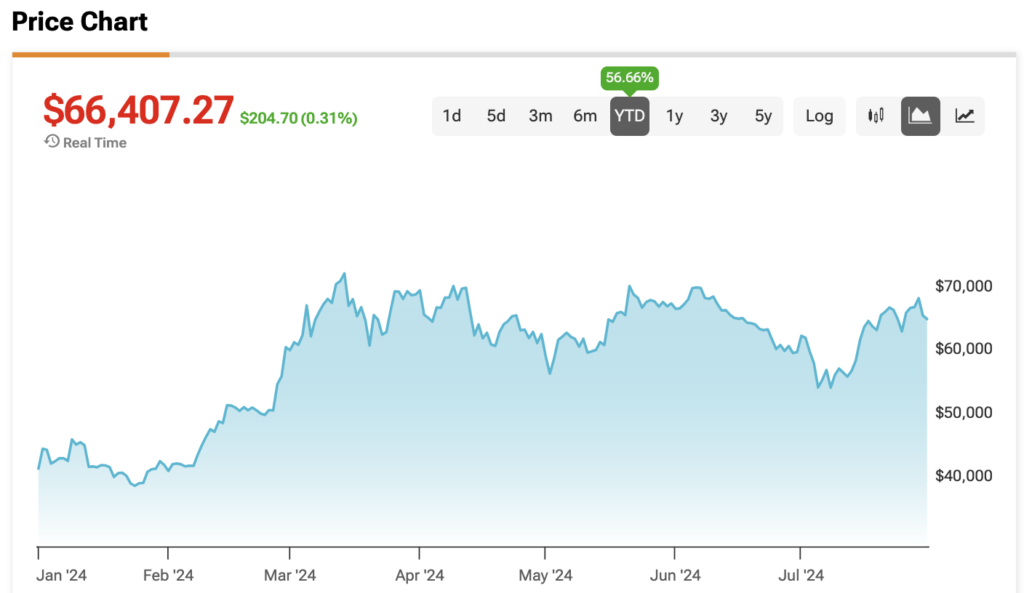The U.S. national debt has reached a jaw-dropping $35 trillion, sparking concerns about the economy’s health. This massive debt load is not just a number; it could have real implications for the financial world and the future of Bitcoin (BTC-USD).
Discover the Best Stocks and Maximize Your Portfolio:
- See what stocks are receiving strong buy ratings from top-rated analysts.
- Filter, analyze, and streamline your search for investment opportunities with TipRanks’ Stock Screener.
Rising Debt and Inflation
Alarming as it sounds, the surging national debt has historical precedents. High debt levels often lead to inflation and erode trust in traditional currencies. Rich Rosenblum, co-founder of trading firm GSR, told Decrypt, “The fact that much of the world has ballooning debt and is arguably in a ‘debt trap’ is the part that’s really good for Bitcoin.” Investors are eyeing Bitcoin as a potential safe haven, similar to gold, thanks to its decentralized nature and limited supply.
Economic Growth vs. Debt
Interestingly, the U.S. economy is showing signs of growth. The Department of Commerce reported that the real GDP grew at an annual rate of 2.8% in Q2 2024, up from 1.4% in Q1. Despite this growth, the debt-to-GDP ratio remains high at 122%, according to the St. Louis Federal Reserve. This elevated debt level poses challenges for future Fiscal policies, especially with an election around the corner.
Government Flexibility Limited
High debt limits the government’s ability to maneuver financially. Should an economic downturn or emergency occur, the government might find it tough to respond effectively. Increased debt could lead to higher borrowing costs and reduced Fiscal flexibility, making it harder to manage the economy.
Bitcoin as a Hedge
With traditional financial systems under strain, Bitcoin’s appeal grows. Matt Bell, CEO of Turbofish, told Cointelegraph, “The recent news of the U.S. national debt reaching the record high of $35 trillion highlights growing concerns around the sustainability of traditional fiat currencies. This situation stresses the importance of Bitcoin as ‘hard money’ — a decentralized and deflationary asset that offers a hedge against currency devaluation.”
Future of Bitcoin
Analysts believe the ballooning national debt could drive Bitcoin adoption further. Jeff Yew, CEO of crypto asset manager Monochrome, told Decrypt, “When traditional risk-free assets like fixed income are backed by a currency engineered to depreciate at an unprecedented pace, investors are reconsidering their risk-free status and look towards alternatives like Bitcoin, which offers a strategic asymmetric return profile in a diversified portfolio.”
Bitcoin’s price often rises during periods of financial stress. With the U.S. government’s debt servicing taking up a significant portion of its spending, government bonds may become less attractive, further boosting Bitcoin’s allure as a store of value.
At the time of writing, Bitcoin is sitting at $66,407.










